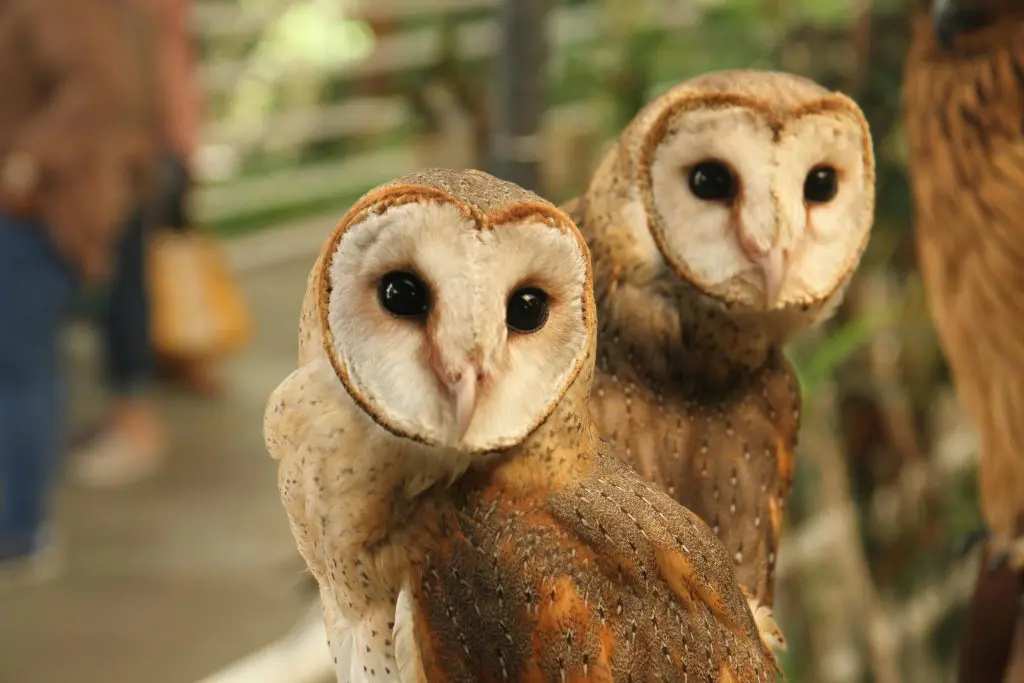
A farm in Ballyalton, near Newtownards, County Down, has become a beacon of success in wildlife conservation after barn owls successfully bred there for the third year in a row. With fewer than 30 breeding pairs of barn owls left in Northern Ireland, this continued success is seen as a hopeful sign for one of […]
A farm in Ballyalton, near Newtownards, County Down, has become a beacon of success in wildlife conservation after barn owls successfully bred there for the third year in a row. With fewer than 30 breeding pairs of barn owls left in Northern Ireland, this continued success is seen as a hopeful sign for one of the region’s most iconic and threatened species.
Healthy farmland ecosystems, like those supporting barn owls, play a vital role in buffering against climate change impacts. Diverse habitats with hedgerows, grass margins, and varied crops improve soil health, water retention, and carbon sequestration. Supporting species like barn owls encourages natural pest control, reducing reliance on chemical pesticides that can harm biodiversity and contribute to greenhouse gas emissions.
The Kelly family, who run a cereal farm in the area, have been working closely with Ulster Wildlife and RSPB NI (Royal Society for the Protection of Birds Northern Ireland) to improve habitats for barn owls and other farmland species. As part of the County Down Farmland Bird Initiative, a project within the Environmental Farming Scheme, they’ve made significant efforts to farm in a nature-friendly way.
Ten specially designed barn owl nest boxes have been installed on their land, providing critical nesting sites. These efforts paid off in 2023 when the first pair of barn owls bred successfully on the farm. They have returned each year since, with this year’s pair raising three chicks in the nest boxes.
Adam Kelly expressed his family’s pride in the continued presence of the owls:
“We are very fortunate to have barn owls on our farm all year long. It gives us a great sense of achievement and proves that what we are doing on the farm is working. Seeing barn owls breed here for three years running is the ultimate reward for farming with nature.”
As a cereal farm, their land supports healthy populations of small mammals like mice and rats—natural prey for barn owls and other birds of prey.
The success on the Kelly farm highlights the critical role of agri-environment schemes in supporting biodiversity. Conservationists warn, however, that continued support is essential. With the current scheme winding down, they are calling on the Department of Agriculture, Environment and Rural Affairs (DAERA) to urgently prioritise the development of the new Farming with Nature scheme to prevent the loss of iconic farmland species like the barn owl.
Katy Bell, senior conservation officer with Ulster Wildlife, noted:
“The Kelly family farm is proof that farming and wildlife can thrive together and shows what’s possible when farmers are supported to work with nature through agri-environment schemes. We urge the department to prioritise the new Farming with Nature scheme as a matter of urgency to ensure iconic farmland species, like the barn owl, are not lost from our landscape forever.”
Michelle Duggan, conservation officer with RSPB NI, added:
“We are absolutely delighted that these magnificent barn owls have decided to make the Kellys’ farm their home to raise their young again. The farm’s seed-rich habitats provide an essential winter food source for farmland birds like the endangered yellowhammer, while also offering ideal territory for barn owls to hunt for small mammal prey.”
The Kelly farm serves as a powerful example of how wildlife can thrive when farmers are given the right tools and incentives. Their seed-rich fields also support other endangered farmland birds, such as the yellowhammer.
As Northern Ireland grapples with biodiversity decline, with one in nine species at risk of extinction, the story of the barn owls at Ballyalton is both inspiring and instructive. But conservationists are clear: to protect this progress, investment must continue.
Barn owls serve as a flagship species, raising public awareness of broader environmental challenges affecting farmland wildlife. Their charismatic appearance and important role as natural pest controllers make them ideal ambassadors for promoting sustainable farming practices. Success stories like the Kelly farm inspire community involvement, volunteerism, and support for conservation policies that benefit many species.
Support for farms like the Kellys’, through public policy and community awareness, is crucial for the future of Northern Ireland’s wildlife. Get involved with organisations like Ulster Wildlife and RSPB NI, and advocate for policies that support nature-friendly farming.
At All-Ireland Sustainability, we’re committed to building a greener, fairer island, together. Stay informed on the latest environmental initiatives, community action, and policy developments shaping sustainability across Ireland, North and South.
👉 Sign up for our newsletter today and be the first to hear about upcoming events, expert insights, and ways to get involved.
Whether you’re a seasoned advocate or just starting your journey, new members are always welcome.
Subscribe now and be part of the All-Ireland Sustainability network.